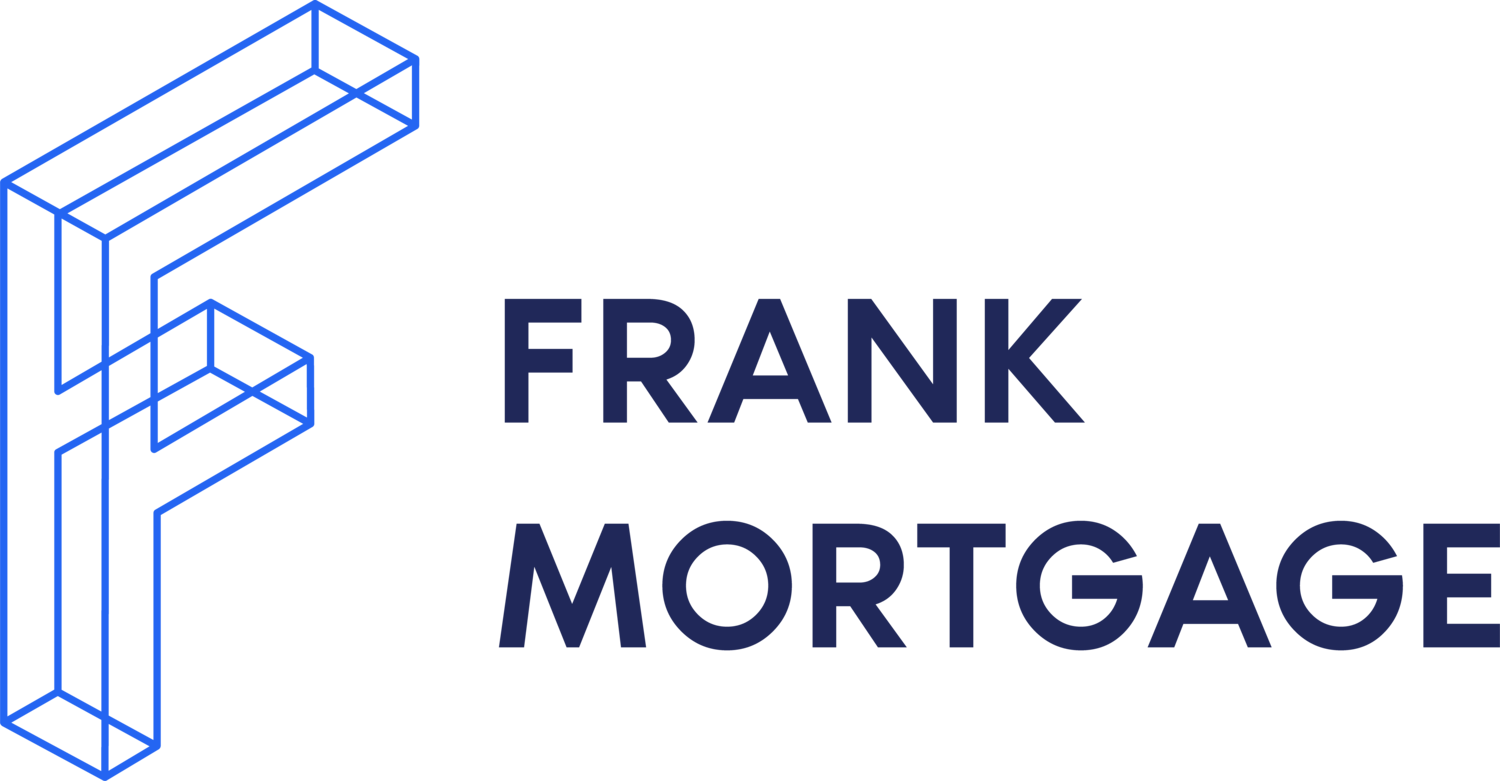
Recent news about the United States threatening to impose tariffs on Canadian goods has introduced significant uncertainty into Canada's economic landscape. These developments are poised to impact various sectors, notably the housing and mortgage markets. While the potential ramifications of these tariffs are not easy to predict, we attempt here to identify the issues we should all be considering. The Tariff Threat In early Feb, U.S. President Donald Trump announced significant tariffs on Canadian imports. He talks frequently about unfair trade and has also stated his objective was to address concerns over illegal immigration and drug trafficking into the United States. On February 1, 2025, he signed executive orders imposing a 25% tariff on all Canadian goods, excluding energy products, which were subjected to a 10% tariff. These tariffs were initially set to take effect on February 4, 2025. The US President Trump postponed the imposition of these tariffs for one month, until March 4, 2025. This postponement was intended to provide time for Canada to address U.S. concerns regarding border security and drug trafficking. On Feb 27, the US President confirmed that the tariffs on Canada and Mexico would be put in place as of March 4. This is not good news and hopefully Canadian diplomats can resolve this. Immediate Economic Implications Despite the delay to March 4, and some moves by Canada to address the issues, tensions have escalated. On February 10, 2025, President Trump announced additional tariffs - a 25% duty on all steel and aluminum imports, including those from Canada, set to commence on March 12, 2025. In response, Canada has threatened retaliatory tariffs on U.S. goods, making the prospect of an unexpected trade war between historically good neighbours a real possibility. The US has also said reciprocal tariffs will take effect in April. The situation remains fluid, with ongoing negotiations between the U.S. and Canada aiming to resolve trade disputes and address the underlying issues prompting the tariffs. These measures are expected to disrupt trade flows, elevate production costs, and potentially lead to a slowdown in economic growth. Bank of Canada Governor Tiff Macklem has cautioned that such trade conflicts could curb economic growth, hurt the Canadian dollar, and potentially lead to higher inflation. Impact on the Housing Market The imposition of tariffs on all goods and a retaliatory response from Canada would have several negative consequences for Canadian housing markets. Increased Construction Costs: Tariffs on imported materials, such as lumber and steel, would increase construction costs. Any increase in construction costs would be passed through to consumers, resulting in higher prices for both new homes and renovations. These elevated costs could exacerbate housing affordability issues and constrain the supply of new homes. Market Uncertainty: The prevailing economic ambiguity may deter potential buyers, leading to a deceleration in housing demand. Prospective homeowners might adopt a cautious stance, postponing purchases until the economic and interest rate outlook stabilizes. Job Losses: Higher costs could slow activity in housing development and renovation that could lead to job losses. This could place some current mortgage borrowers and homeowners under stress and take other potential new market entrants out of the market. Tariff Impact on Mortgages The impact that significant tariffs have on the mortgage market could be immediate: 1. Mortgage Rates There are diverging opinions currently about where mortgage rates may go if tariffs are imposed. There are two key channels through which we will see the interest rate impact. Bank of Canada Monetary Policy Adjustments - Most economists agree that a tariff war with the US will slow down the Canadian economy, perhaps sending us into a recession. The Bank of Canada may contemplate reducing interest rates to stimulate economic activity. Governor Macklem has indicated that monetary policy could support demand in the event of a trade war, suggesting that rate cuts might be more substantial than previously projected. However, many have cautioned that interest rate cuts may not have a meaningful impact on an economic slowdown resulting from higher costs due to tariffs. While the Bank of Canada may not be able to effectively offset the negative impact, many analysts, including those at the Bank of Montreal, think they might cut rates by as much at 1.50% this year if the US imposes the full 25%, across-the-board tariffs. This would significantly reduce variable mortgage rates, which would be beneficial for mortgage borrowers. Bond Yield Fluctuations - Escalating trade tensions have already led to a decline in Canadian bond yields, with the 5-year bond yield reaching its lowest point since June 2022. Bond yields often decline in advance of economic weakness. A downturn in bond yields is often followed by a decline in fixed mortgage rates, potentially offering relief to borrowers. 2. Reduced Market Activity The tariff talk creates tremendous uncertainty. The old saying is ‘uncertainty breeds contempt’ and we are seeing that in the reactions many are having to the tariff threat as well as in declining consumer confidence in survey results. We may witness a slowdown in housing and mortgage market activity with new buyers, movers, and investors exercising caution until the tariff issue is resolved. 3. Mortgage Defaults Economic weakness usually leads to worsening performance in mortgage portfolios. Job losses, loss of confidence and narrowing options will lead to an increase in mortgage defaults as borrowers struggle to meet obligations. We have already recently seen an uptick in consumer credit defaults and mortgage delinquencies have been increasing. Despite this concern, Canadian mortgage portfolios have performed well during prior downturns. The legal structure and culture in Canada promote good payment behavior and Canadians always do whatever it takes to keep their home.

Purchasing an owner-occupied rental property in Canada can be a strategic way to build wealth while securing a home for yourself. But if you’re planning to put down less than 20% of the property’s purchase price, you’ll likely need mortgage default insurance. Here’s what you need to know about how mortgage default insurance works for owner-occupied rental properties.

What are Canadian mortgage rates going to do in 2025? We do not have a crystal ball, and the markets are sending mixed signals right now. However, we do think that more rate cuts are coming but are concerned that fixed mortgage rates are near their floor. What might all this mean? – read on. 2025 Mortgage Rate Prediction We expect variable mortgage rates to decline a further 0.50% to 0.75% in 2025. This will bring them below fixed mortgage rates for the first time since 2022. It is historically the norm for variable mortgage rates to be below fixed mortgage rates. This means five-year variable mortgage rates could be in the range of 3.6% to 4% by the end of the year. We do not expect much change in fixed mortgage rates in 2025. Bond yields have modest rate cuts already priced in and are resisting further declines. The recent steep increase in the US 10-year bond tells us that the bond market thinks central banks are wrong to cut rates further. We must pay heed to those signals since fixed mortgage rates depend on the bond market. We anticipate five-year fixed mortgage rates to range between 3.8% and 4.5% for most of the year. We can only rely on market inputs to generate our own expectations for mortgage rates in 2025. Those key inputs include: The Bank of Canada has indicated more rate cuts may be coming in 2025, but the pace and size of the cuts will be more gradual; Economists are forecasting a weakening Canadian economy. When the economy weakens, the central bank tends to cut rates to provide economic stimulus; The US Federal Reserve has stated they are in no rush to cut rates; The US 10-year bond has risen by 0.85% since the Federal Reserve began cutting rates in Sept 2024; Canadian 5-year bond yields are unchanged since August 2024 and only 0.15% lower than in mid-Jan 2024; US Federal Reserve reluctance to cut rates may limit how much the Bank of Canada can cut. When the Bank of Canada cuts rates more than the US does, it hurts the value of the Canadian dollar; and Analysts in Canada and the US expect rate cuts in 2025. There are many risks that are not priced in yet that could materialize. Economic weakness will increase the likelihood of more rate cuts and could even reduce bond yields. Economic strength will eliminate the need for rate cuts and could even lead to higher rates. There are also political and geopolitical risks that are not our place to opine on. They are difficult to predict but could significantly impact our interest rate markets in 2025, a year currently marked by uncertainty. What Happened to Mortgage Rates in 2024? The Canadian market entered 2024 with high expectations for multiple Bank of Canada interest cuts, starting as early as March or April. The cuts came a bit later than anticipated, with the first cut on June 5. We saw cuts totaling 1.75% from June through December. The last two cuts, in October and December, were consider ‘jumbo’ cuts of 0.50% (the usual cut is 0.25%). These cuts had the expected direct impact on variable-mortgage rates which dropped by the same amount. Fixed rates are ‘forward-looking’, so they move when expectations change. As the chart below shows, they dropped in anticipation of the cuts but, once the rate cuts gathered steam later in the summer, they remained relatively flat.

If you’re in the market for a mortgage, one key consideration is the rate type on the mortgage you choose. Will you opt for a fixed-rate mortgage or a variable-rate mortgage? Fixed rate mortgages are the most popular but does a variable-rate mortgage make sense today, now that rates have been declining?

High rates and increasing house prices have made qualifying for a mortgage in Canada more difficult. Recent declines in mortgage rates have been helpful but housing affordability is still stretched. Meanwhile, the government sees the housing and mortgage markets as opportunities to score political points and has repeatedly intervened in the market, at times stimulating demand and other times trying to curb the increase in credit growth and/or house prices.

With the Bank of Canada in a rate-cutting cycle, many Canadians expect mortgage rates to continue to drop. This may be true for variable mortgage rates since they track changes in the Bank of Canada rate. However, fixed mortgage rates don’t directly follow the Bank of Canada’s overnight rate. Instead, they are tied to the bond market, which has shown mixed signals recently.






